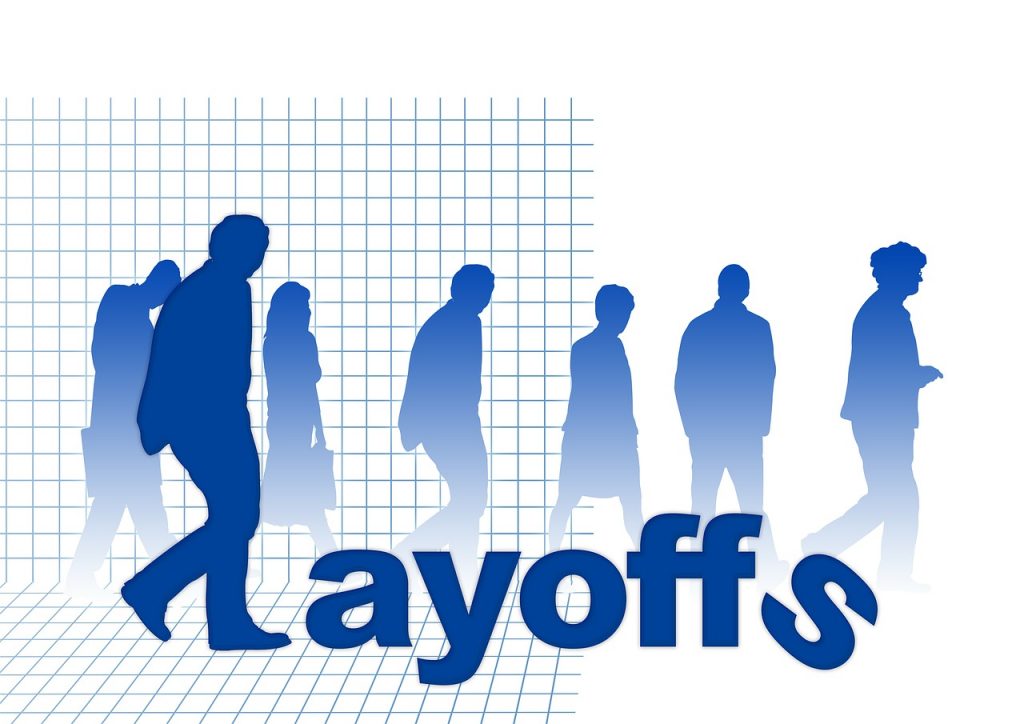Search
The types of COVID-19 lawsuits that employers can expect. Part One: WARN Act

Image Credit: geralt (pixabay.com)
Over the past few weeks, I’ve been compiling a Google Drive folder full of coronavirus-related employment lawsuits that plaintiffs have filed in federal courts across the country.
For the rest of this week, I’m going to profile a few of them so that you know what your business may be up against later.
WARN Act
I don’t discuss the federal Worker Adjustment and Retraining Notification (WARN) Act much on this blog. But, I did address it tangentially last week when I focused more on New Jersey’s state law version.
In some detail, I explained how WARN requires larger employers to provide 60 days’ advance notice in cases of plant closings and mass layoffs.
The exposure for violating WARN is high. An employer that violates the WARN Act notice requirement is liable to each affected employee for an amount equal to back pay and benefits for the period of violation up to 60 days. (Plus, an employer that fails to provide notice as required to a unit of local government is subject to a civil penalty not to exceed $500 for each day of violation.) And since we’re talking about dozens and potentially hundreds or thousands of adversely-impacted employees, violations of the WARN lend themselves to, you guessed it…
A class-action lawsuit.
Last Thursday, two plaintiffs, on behalf of themselves and 677 other similarly situated former employees, sued their former employer under the WARN Act. They claim that the defendant provided no advance notice — let alone 60 days’ advance notice — when it engaged in a mass layoff on March 25, 2020. Consequently, each plaintiff seeks 60 days of back pay and benefits.
You can view a copy of the lawsuit here.
The plaintiffs allege that “Defendant could have but failed to evaluate the impact of COVID-19 upon its 679 employees 60 days prior to the March 25, 2020 mass layoff, as evidenced by the fact that it gave no advance written notice whatsoever.”
The plaintiffs further allege that “the fact that Congress recently made available to Defendant and many other businesses nationwide millions of dollars in forgivable loans through the ‘Paycheck Protection Program,’ but Defendant still opted to instead engage in a mass layoff — and do so without any advance written notice to its employees — only further underscores the severity of the WARN Act violations.”
Except, here’s the thing.
The CARES Act didn’t become law until March 27, 2020, which is two days after the alleged mass layoff.
Plus, you may be thinking to yourself, “Hey, aren’t there some exceptions to the 60-day notice rule.”
Correct. One of them involves unforeseeable business circumstances (i.e., a business circumstance that is caused by some sudden, dramatic, and unexpected action or conditions outside the employer’s control).
The feds have yet to confirm that COVID-19 has created unforeseeable business circumstances that absolve an employer from having to provide 60 days’ notice. But states like CA, NY, and NJ have acknowledged as much. And I suspect that a federal judge would agree without having to leave that issue up to a jury to decide.
So, the plaintiffs in this lawsuit may face an uphill battle.
Are other employers — like yours — in the clear?
For layoffs back in the second half of March, when 💩💩💩 was suddenly hitting, the fan I’d say your chances of successfully defending a WARN lawsuit are good.
But, as larger layoffs and furloughs continue, I would expect more of these lawsuits. That’s because the longer this pandemic lasts, the less unforeseen the business circumstances that precipitate these layoffs may be. Therefore, it becomes harder for employers to argue that “sudden, dramatic, and unexpected action or conditions outside the employer’s control” forced a plant closure or mass layoff. In addition to the other non-WARN considerations, keep that in mind before you separate a large portion of your workforce.
And, as always, if you are going to furlough, layoff, or terminate a large group of employees, please contact an employment lawyer first to help you.
 The Employer Handbook Blog
The Employer Handbook Blog


